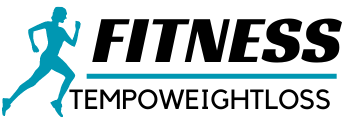Fad diets are nothing new in the health world. From the old-school grapefruit diet to the wildly popular ketogenic diet, finding ways to change your eating habits to support your weight loss goals is something people have been doing for decades.
A new diet has emerged, the egg diet. If you guessed that you’re going to need some eggs next, you’re right. Here, we’ll explain exactly what an egg diet is, what foods you can enjoy while following it, and whether it’s worth trying.
What is an Egg Diet?
Unlike diets like Whole30 and the South Beach Diet, which have rules about what you should and shouldn’t eat when you follow them, the egg diet isn’t a formal plan and there are many versions, some more serious than others. strict. But no matter which version you follow, this way of eating requires you to eat at least one egg per day.
Of all the egg diets, the most restrictive version is the “egg-only” diet, which literally only allows people to eat eggs with meals and snacks. There are also more liberal versions of the diet that require an egg a day and a low-calorie, low-carb, high-protein meal plan. Foods such as snacks, ultra-processed foods, and any beverages that contain calories are not allowed when following this version of the egg diet.
Egg Diet Food List
Since there is no standard version of the egg diet, a list of “allowed” foods (other than eggs) cannot be provided. For those following the “eggs only” version, the only food allowed is eggs. But for those who don’t follow this restrictive diet, some foods may also be permissible.
The hard-boiled egg diet created by Arielle Chandler and explained in her 2018 book includes:
- Eggs (at least once a day, depending on which version of the diet you choose)
- calorie-free drinks
- lean meat
- non-starchy vegetables
- low carb fruit
- fats and oils
- herbs
- spices
This diet does not allow foods with added sugars, grains, starchy foods, high-carb fruits, and ultra-processed foods.
Is the Egg Diet Safe?
Like all diets, there are pros and cons to following an egg diet. Here are some of the main pros and cons of following this egg-centric diet.
Advantages of the Egg Diet
It encourages the consumption of nutrient-dense eggs
Each version of the egg diet required participants to eat at least one egg per day. Eggs are a versatile food and a source of many important nutrients, including protein, healthy fats, vitamin B12, choline, and vitamin D. Those who follow the diet may also reap some of the benefits of eating eggs, including hair and skin health, vision health and increased satiety with egg meals.
The American Heart Association’s advisory recommends that for healthy people, consuming one egg per day is acceptable in a heart-healthy eating pattern. Given the nutritional value and convenience of eggs, it is acceptable to consume up to two eggs per day in a heart-healthy eating pattern for older adults.
it can promote weight loss
Low-carb diets, including ketogenic diets, are known for supporting weight loss goals in certain populations. Because the egg diet encourages the consumption of low-carb and high-protein meals, following it may lead to weight loss. While no scientific studies support this link, some anecdotal reports link egg diets to positive weight loss outcomes.
Disadvantages of the Egg Diet
Long-term compliance can be challenging
Even the most egg-free diet is highly restrictive, thanks to its “rule” of avoiding many nutritious foods, such as starchy vegetables, fruits, and grains. Weight loss diets that ask people to avoid entire food groups are notoriously challenging in the long run .
it can lead to nutritional gaps
It is true that the egg diet includes nutrient-dense foods (like eggs! Some versions allow people to eat vegetables, non-starchy fruits, and other foods that provide some nutrients.
But eliminating entire food groups can lead to nutritional gaps. For example, results of a systematic review showed that following a carbohydrate-restricted diet was associated with significantly lower intakes of thiamine, folate, magnesium, calcium, iron, and iodine.
it may not be for everyone
Following a low-carb and high-protein diet, eliminating grains and banning snacks may not be the best dietary choice for everyone. For example, among people trying to conceive, following a carbohydrate-restricted diet prior to conception was associated with a 30 percent greater likelihood that the baby would have anencephaly or spina bifida . This may be due to insufficient intake of folic acid, a key nutrient for cell growth and development.
Should you try the egg diet?
The egg diet is restrictive and may not be safe to follow for prolonged periods of time, especially if you are trying to follow the “eggs only” version. Because of this, it is unlikely that any healthcare professional would recommend following this diet.
That said, including eggs in a balanced, nutrient-dense eating pattern that includes all food groups may be a healthy choice.
Moderate egg consumption (up to one egg per day) was significantly associated with a lower risk of cardiovascular disease, according to a study published in Heart. Other data, published in the British Journal of Nutrition, showed that regular egg consumption was associated with improved cognitive performance in adults.
common problem
Can Eating Eggs Help You Lose Weight?
While you can lose weight by eating only eggs, it’s not an evidence-based way to lose weight. Eating just one food can lead to nutritional gaps, which can become dangerous.
How Many Eggs to Eat on an Egg Diet?
The number of eggs you eat on an egg diet depends on which version you’re trying to eat. The number of eggs consumed can vary from just one egg to many eggs per day.
What are the side effects of the egg diet?
Following any low-carb diet can lead to some nasty side effects , including constipation, fatigue, bad breath, and headaches. And those who eat a few eggs a day may be consuming more than the recommended amount of saturated fat, which can negatively affect heart health .
The egg diet can be appealing when trying to lose weight. But it can be restrictive, sending your body through nutritional gaps, as well as feelings of sluggishness, constipation, and headaches. Instead of adopting an egg diet, try a more evidence-based and balanced approach, such as the Mediterranean diet or the DASH diet , and consider adding an egg to a typical meal day for its nutritional benefits.




